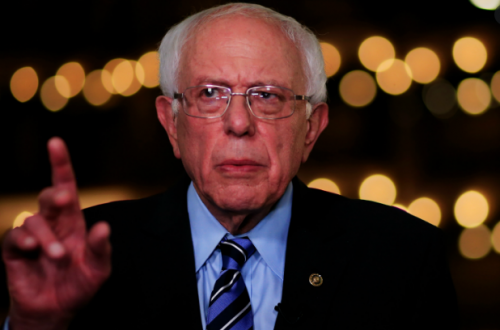Tony Benn on Michael Foot and the 1983 election. After pointing out he was more interested in pushing his agenda than being elected, he sets out two reasons why Michael Foot lost the 1983 election:
Michael was very keen to get Labour back into office, whereas I was more eager to put forward a few ideas based on my experiences, but there was no ill-will there.
“Of course, Michael inherited the leadership at the most difficult time for the party.
“Two things happened that made it impossible for him to win the 1983 general election.
“The first is that Roy Jenkins and Shirley Williams and others left Labour and set up their own party, the SDP, which did a great deal of damage.
“The other was the Falklands War, which made Margaret Thatcher hugely popular – before then she had been a very unpopular prime minister. Put together, it made it impossible for Michael to carry victory.
There is of course a third reason that Benn sidesteps: Tony Benn and his supporters.
In the lead up to the 1983 election, Foot had to deal with a highly visible splits within the Labour party over a number of serious issues. Benn was insistent that Labour campaign strictly on its disastrous manifesto. Attempts by Foot and Healey to grab the middle ground, were thwarted by the Bennites radicalism. The Conservative deputy leader was able to call Labour policies “mad” and “dominated by the extreme left”. Despite Foot’s attempts to deflect these statements as scare tactics, he had an uphill battle on his hands, since Whitelaw’s analysis was widely accepted by the electorate.
The failure at the general election was presaged by a collapse in Labour support following the Bennites victory at the Labour Party special conference in 1981. Prior to that Gallup was giving Labour 46% of the popular vote (January 1981), enough to replicate Thatcher’s 1979 victory. The Conservatives were 13 points behind. Immediately after the special conference Labour had lost 11 points. The deputy leadership contest, sparked by Benn, cost the party another 8 points. Inward looking Labour had ceased to listen to its supporters. The internal warring within the party had alienated traditional support of the party – including trade unionist support.
Even, the Falklands conflict’s boost to Thatcher was strengthened by a failure of Benn to get behind Foot’s principled stand. Foot drew attention to the fascist nature of the Argentinian regime:
Sir Bernard Braine (Essex, South-East): Is the right hon. Gentleman excluding from his thoughts the fact that we are dealing with a Fascist State where thousands of people have disappeared without trace in recent years? Does he think it right and proper that people of British stock who live in a small democracy should be left at the mercy of that State for one moment longer than is necessary?
Mr. Foot: I agree entirely with the hon. Gentleman about the Fascist character of the regime in the Argentine. I have been as bitterly and as strongly—in some respects, more strongly—opposed to such regimes as Conservative Members. I do not know whether the right hon. Member for Hertfordshire, South (Mr. Parkinson), who attends some of the special war Cabinets of the right hon. Lady, will speak on these matters. A few weeks or months ago he was toasting the regime in the Argentine. Certainly I have never been guilty of any such thing.
Foot was an honourable man who was given the impossible job of steering a warring Labour party back to the middle ground. Despite the perception that he was the worst Labour Leader ever to hold the post, it is arguable that he laid the ground for Kinnock to start the process of change in the Labour Party. Benn’s selective memory conveniently paints out his role in making Foot’s job far harder than it should have been.


